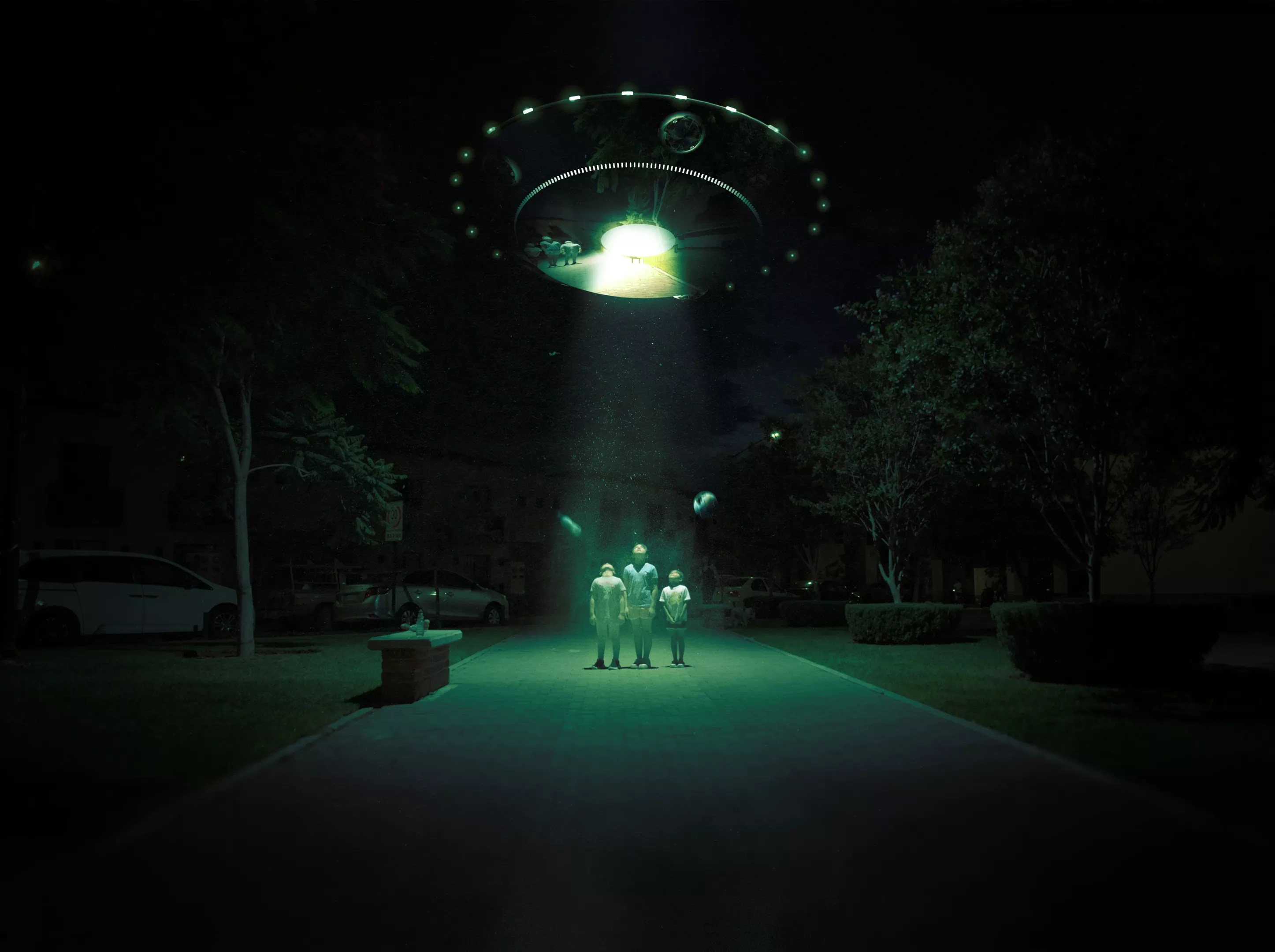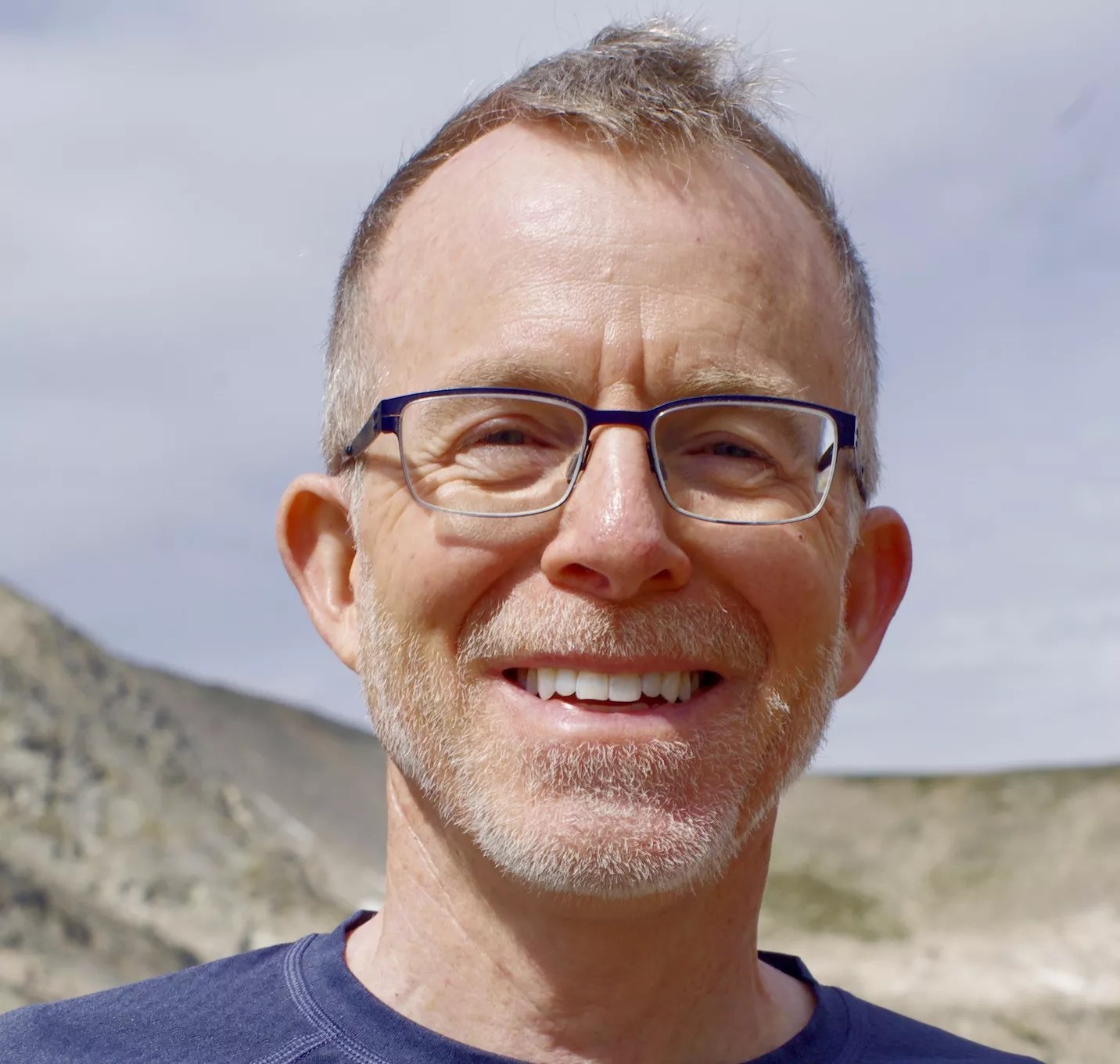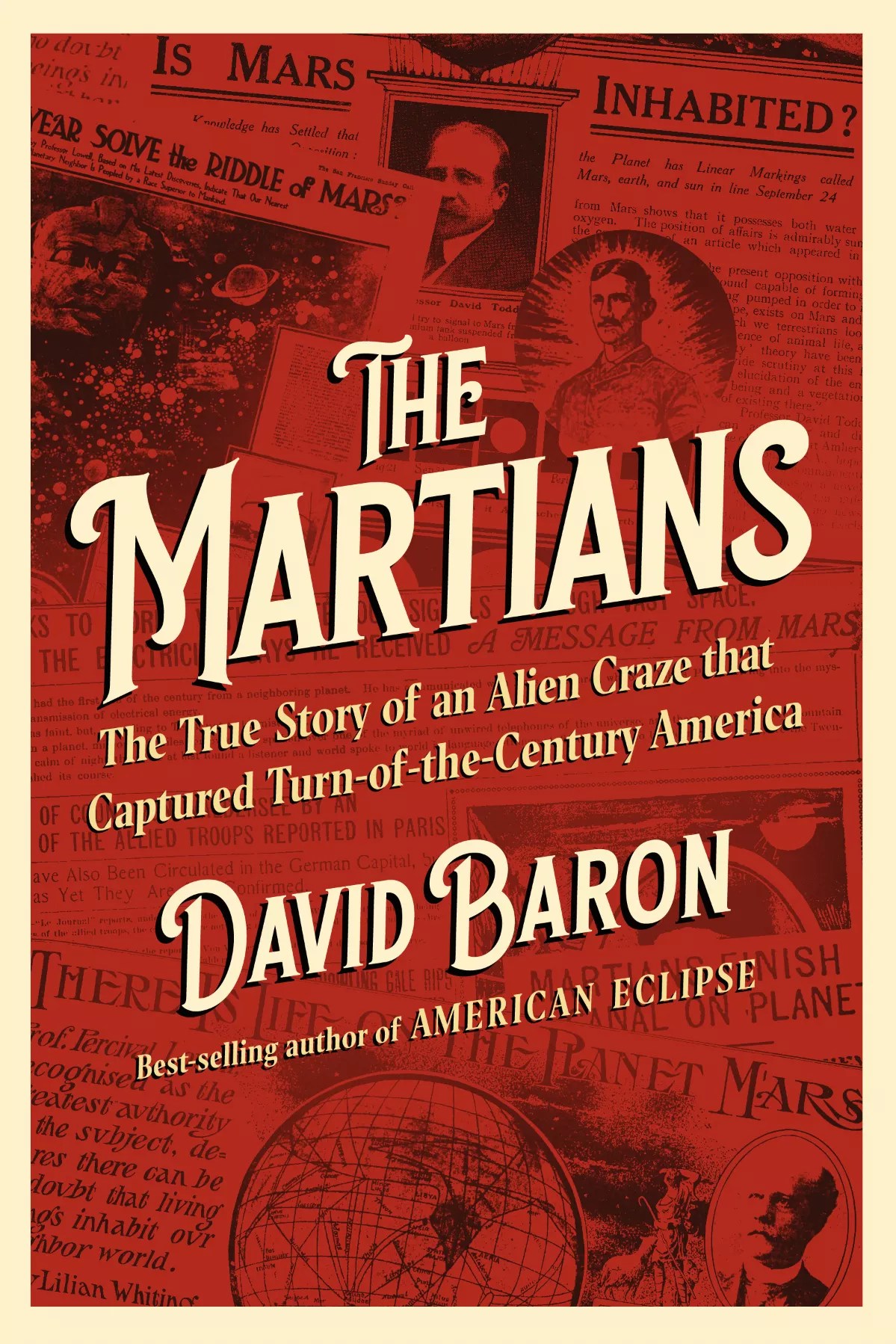
Unsplash

Audio By Carbonatix
Best-selling Boulder author David Baron readily admits that he didn’t consider himself a writer for a long time. That might be surprising to fans of his books – his debut, The Beast in the Garden, won a Colorado Book Award; his 2017 book American Eclipse not only won awards, but is in the process of being adapted into a stage musical with its eyes on Broadway. Or for longtime listeners of NPR, where Baron worked as a science correspondent and science editor for the program The World, all the while winning journalism awards and writing for outlets including The New York Times, Washington Post, Wall Street Journal, Scientific American and more.
“I was always more of a hard sciences guy,” he claims with a grin. “I was always serious about that.”
Baron’s new book, The Martians: The True Story of an Alien Craze that Captured Turn-of-the-Century America, is proof of that passion – and Baron’s ability to spin a yarn about the sometimes wild world of scientific discovery. He’ll be appearing at several events connected with the launch of The Martians: at the Boulder Public Library’s Canyon Theater on Tuesday, August 26 for a live taping of the KGNU Radio Book Club and for presentations at Tattered Cover Aspen Grove on Wednesday, August 27, and Estes Park High School on Saturday, August 30.

Boulder author David Baron has his eyes on the sky (and beyond).
David Baron
Baron was born in Philadelphia and schooled in the Boston suburbs, all the while submerged in science. “As a kid in the 1960s, I remember being a kid immersed in outer space,” he says. “We all were. It was the time-the Apollo program, Martians, that was what people were talking about. And I grew up watching Carl Sagan and Nova on PBS. The great thing about Nova was that it approached science as a detective story. So it really had a way of sucking you in.”
“And I was very much a nature kid,” Baron says. “I was a rock hound in junior high school and high school. I used to go up to New Hampshire and Maine to collect smoky quartz and tourmaline and other semi-precious gemstones.”
Baron isn’t exaggerating about a kid that young making his way up through several New England states looking for rocks. By then, he was an experienced solo traveler. “I’d been fascinated by geodes,” Baron smiles, “you know, those hollow rocks you crack open and there are crystals inside. When I was 13, my family was planning a road trip across the country, and I got a book on the best places to go rock hunting on a trip like that. I discovered Keokuk, Iowa was known for its geodes. So I had planned that my family would stop there – but then the family trip was called off. I was very disappointed. But my father said, ‘That’s no reason you can’t go.'”
Baron took his father up on that idea. He saved up some money, enough for a bus ticket from Boston to Keokuk about a year later, spent a few nights on his own at the Holiday Inn, and during the day would go out to hunt geodes. “It turned out to be hugely influential in what I’d do in life,” says Baron. “To this day, I love travel, all over the world. It’s the reason I became an eclipse-chaser [which led to his second book American Eclipse, a best-seller]. My dad trusted me. My mom wasn’t so thrilled by the idea,” he laughs. “But I can trace back a lot of what I now love to the excitement of that solo journey to Iowa when I was 14.”
By the time Baron got to college, he was sure he was going to be a scientist. “I double majored in physics and geology,” he says, “and I had every expectation that I was going to go on to get a PhD in something in the sciences. But I was also fascinated by radio.”
It was that fascination that turned the page for Baron in terms of his career. A self-described “NPR junkie” since he was young, Baron got into the college radio scene and was able to intern for NPR the summer following his freshman year. He worked as a tape-cutter for All Things Considered, literally shortening interviews to usable bites for use on the show. “When I graduated college, I thought I might try science journalism instead of actually going into the sciences.”
The writing came slowly to Baron over his time as a science correspondent for WBUR in Boston. “I always thought of myself more as a producer,” he says, “but of course I was writing.” After working in public radio for 13 years, Baron says he started to get a little burned out, which was when he relocated to Colorado for a Ted Scripps fellowship at CU Boulder. That fellowship led to his first book, about the growing conflict between people and large predators like mountain lions, which led to more magazine work, which led him back to radio and eventually his second book, and now his third, The Martians.

The cover of Baron’s new book.
David Baron
“My first two books, the subject matter came upon me organically,” says Baron. “I wrote a piece on a jogger in California who’d been killed and eaten by a mountain lion back in ’94. And then in 1998, I saw my first total solar eclipse in Aruba, and I was just completely blown away. I decided then I wanted to write a book about solar eclipses, but I knew the next one wouldn’t cross the United States until 2017, so I made a plan in ’98 to write that book to come out in 2017.” The idea for a third book was something Baron says he had to chase down.
“We tend to think of space exploration as something that happened in the 1960s,” says Baron. “Or maybe the ’50s. But it really began with what I talk about in this book, with the Mars craze.”
The science was inflated by a journalism still freely yellow and eagerly sensationalistic, which in turn fed the science fiction that would come from it, which then circled back to inspire those scientists to determine the truth. “Robert H. Goddard, the father of American rocketry, built the first liquid-fueled rocket because he’d read H.G. Wells’ War of the Worlds when he was a teen and wanted to know if we really could go to Mars,” Baron says. “And how could we do it?”
Baron refers to something Einstein said in an interview: “Imagination is more important than knowledge. For knowledge is limited, whereas imagination embraces the entire world, stimulating progress, giving birth to evolution. It is, strictly speaking, a real factor in scientific research.”
“I’m putting to use what I learned from really good storytellers from public media,” Baron says. “When I write about science, what I’m really trying to do is write a good story. My goal is to find great characters and a fascinating setting and a wonderful plot. That’s just a great story that happens to do with science. And along the way, people who don’t think they care about science might learn a thing or two. That’s always been my goal, whether working with NPR or writing books. To try to move people emotionally, while at the same time making them think.”
David Baron will appear with his new book, The Martians: The True Story of an Alien Craze that Captured Turn-of-the-Century America, at 6:30 p.m. Tuesday, August 26, at Boulder Public Library’s Canyon Theater; at 5:30 p.m. Wednesday, August 27, at Tattered Cover Aspen Grove; and at 7 p.m. Saturday, August 30, at Estes Park High School.